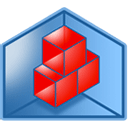Top SCons Alternatives: Finding Your Next Build System
SCons is an Open Source software construction tool, often seen as a next-generation build tool. It improves upon the classic Make utility, offering integrated functionality similar to autoconf/automake and compiler caches like ccache, making it an easier, more reliable, and faster way to build software. However, no single tool fits every project's needs perfectly. If you're looking for a robust SCons alternative, you're in the right place to explore other powerful build systems.
Best SCons Alternatives
Whether you're dealing with specific language requirements, cross-platform complexities, or simply seeking a different approach to project management, these alternatives offer diverse solutions to streamline your development workflow.

CMake
CMake is a powerful, Free and Open Source family of tools designed to build, test, and package software. It's an excellent SCons alternative, especially for projects requiring C++ and C support across multiple platforms including Mac, Windows, Linux, and Haiku, offering superior cross-platform capabilities.

GNU Make
GNU Make is a classic, Free and Open Source tool that controls the generation of executables and other non-source files from a program's source files. It's a foundational build tool available across Mac, Windows, Linux, BSD, and Cygwin, and while it doesn't boast the integrated features of SCons, its simplicity and ubiquity make it a viable SCons alternative for many.

Maven
Apache Maven is a Free and Open Source, Java-based tool for build automation and project management. Centered around a Project Object Model (POM), Maven is a strong SCons alternative for Java-heavy environments, offering robust build system features and some C++ support, compatible with Mac, Windows, and Linux.

Gradle
Gradle is an evolved build automation system, Free and Open Source, capable of automating the building, testing, publishing, and deployment of software packages. With excellent build system features and specific support for Java, Gradle is a powerful SCons alternative for Mac, Windows, and Linux users seeking flexibility and performance.

Buck
Buck is a Free and Open Source build system developed by Facebook, encouraging the creation of small, reusable modules. Supporting a variety of languages including Java, Python, and Rust, Buck is an efficient SCons alternative for Mac and Linux users, particularly for large, complex projects.

Premake
Premake is a Free and Open Source build configuration tool that allows you to describe your software project once and build it everywhere. Its simple syntax and cross-platform capabilities, along with its portability across Mac, Windows, and Linux, make it a compelling and user-friendly SCons alternative.

MakeMe
Embedthis MakeMe is a modern, Free and Open Source replacement for Make and Autoconf, managing program builds and IDE project generation. Its cross-platform support on Mac, Windows, and Linux positions MakeMe as a strong SCons alternative for those seeking an integrated and efficient build management solution.

Ant
Apache Ant is a Free and Open Source, Java-based build tool that uses XML files to describe and control the build process. While perhaps less modern than SCons in some aspects, its widespread adoption and simplicity for Java projects on Mac, Windows, and Linux still make it a practical SCons alternative.

Rake
Rake is a Free and Open Source software task management and build automation tool, primarily known for its use with Ruby. It allows defining tasks and dependencies, and its portability across Mac, Windows, Linux, and BSD makes it a good build system SCons alternative for Ruby-centric development.
Choosing the best build system depends entirely on your project's specific needs, programming languages, team preferences, and target platforms. We encourage you to explore these SCons alternatives further to find the perfect fit that enhances your development efficiency and workflow.